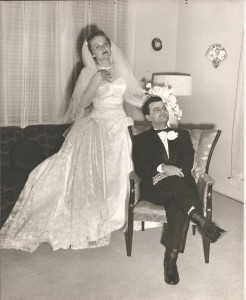When we lived in Boston, we would often drive back to Charlestown down the Cambridge side of the Charles River, which meant we passed the Museum of Science. We were sitting at the traffic signal one afternoon and read this billboard:
Come visit the new planetarium at the Museum of Science, you tiny insignificant speck in the universe.
We laughed out loud, and then talked about how the advertisement echoed Psalm 8:
When I look up at your skies,
at what your fingers made—
the moon and the stars
that you set firmly in place—
what are human beings
that you think about them;
what are human beings
that you pay attention to them? (CEB)
Though I am by no means an astronomer—I can recognize Casio Pea, the Pleiades, Orion, and the Dog Star that follows him—I am fascinated by the stars, as much for the stories that have to tell as anything else. To stare into the sky at night is to get as close as we can to “In the beginning . . . .” Chet Raymo writes that as he learned how many stars filled the sky he wondered how it could be dark at night, since there was so much light in the stars. Then, he said, he realized it just hasn’t gotten here yet.
I heard a story on NPR this week about the Navy returning to teach their navigators how to use the stars. Those who guide our military vessels these days are completely reliant on GPS, which means if the power were to go down or the systems were to be hacked, they would not know where they were, so they are going back to learn skills shared by most of the humans who sailed the seas who our place by reading the stars, which was a consistent reminder of our connection to the universe.
Yes, I work in a computer store. Yes, I love what I can do with my smart phone. It is a powerful device. I was in college when the Voyager I was launched, with an eye to being the first space ship to get out of the solar system. When it accomplished that goal in 2012, I was teaching a workshop at the store on how to use the newest version of our phone. The same day, the New York Times published an article noting that the computer in the phone we were learning how to use—to check email and watch cat videos—was 250,000 times more powerful than the one that had shown the Voyager how to reach for stars we have hardly seen.
Both of my Lenten literary companions, Marilynne and Madeleine, talk about stars, and parse a word I had no idea had anything to do with the sheltering sky. I came upon L’Engle first, in the same chapter where she talked about at-one-ment:
Jacob, lying on the ground, the stone under his head, would have seen stars as we cannot see them today . . . . If we look at the makeup of the word disaster, dis-aster, we see dis, which means separation, and aster, which means star. So dis-aster is separation from the stars. Such separation is disaster indeed. When we are separated from the stars, the sea, each other, we are in danger of being separated from God.
Twenty years later, Robinson wrote similarly,
Etymologically, a disaster is a bad star. These words are from Latin, which came late into the world, but which expresses a prescientific confidence in the inter-involvement of the cosmos and humankind.
The Psalmist’s question is rhetorical. We are created in the image of God. We are connected to the stars, and everything else in Creation. We are of incredible significance. We are wonderfully and uniquely created in the image of God and worthy to be loved, and to love. One of my father’s favorite observations about Jesus was that when he referred to people as sheep he was not being complimentary. “They are the dumbest animals. They will do anything without thinking,” he would say. Though I understand his point, and have enough life experience to find resonance with it, I’m not sure it was what Jesus was trying to say. He was talking about the shepherd more than the sheep, saying more about who he was, about who God was, than making a statement about human intelligence. My companions are tracking each other once again. Listen to Madeleine once again,
For all our mechanical and electronic sophistication, our thinking about ourselves and our maker is often unimaginative, egocentric, and childish. We need to do a great deal of growing up in order to reach out and adore a God who loves all of us with unqualified love.
Marilynne takes the thought a couple of steps further.
I have felt for a long time that our idea of what a human being is has grown oppressively small and dull . . . . The lowering of ourselves in our own estimation has been simultaneous with the rise of an egoism based on the assumption that it is only natural to be self serving, and these two together have had a destructive effect on public life . . . . Yet all this is unacknowledged as we sink deeper and deeper into the habit of mutual condescension, tending always toward mutual impoverishment . . . . Over and above specific instances, and behind them, is a drift toward cynicism and away from mutual respect and from willingness to take responsibility for our life as a community and a culture.
This day we call Super Tuesday has become an unofficial holiday celebrating a cynical image of ourselves as people who are no more than consumers, or members of a mob demanding we get our way, based on the way the vote is going. That Donald Trump is a viable candidate says more about who were are than it does about him. He has run before and was laughed off the stage; we knew not to take him seriously. That he can take the stage and take the vote means we have changed. We have believed the worst of ourselves. We have lost a sense of ourselves and what it means to care for one another. We have confused freedom with license, candor with saying whatever passes through your mind. We have deified the individual—what matters most are my rights—and lost sight of our humanity, which means we have lost sight of God as well because we have obfuscated that image in us.
L’Engle calls it sin.
It is not frivolous to say that sin is discourtesy . . . . Sin, then, is discourtesy pushed to an extreme, and discourtesy is a lack of at-one-ment . . . . To be discourteous is to think only of yourself, and not of anybody else.
We are born in original love, created in the image of God—Creator, Christ, and Holy Spirit, which is an image of community and interrelatedness. At the heart of God’s very essence is relationship. We were made to take care of one another. The discourtesy that divides us is sin: separation from God and from one another. We were made to read the stars, to find ourselves in them. We were made to create a world where everyone is regarded and cared for. That is not a political perspective, but a human one, a courteous one. We are made to work for the common good, to respect and love one another. When we look into the night sky we know, along with the Psalmist, what God thinks of us. Let us look around and ask, what do we think of ourselves, of one another?
Our disaster need not be the last word.
Peace
Milton
 ninety. He was also the man who was responsible for “Hey Jude,” as well the Beatles being known at all, and also for helping to create most all of the memorable moments we know in their songs, which means he was responsible for much of the soundtrack of my growing up.
ninety. He was also the man who was responsible for “Hey Jude,” as well the Beatles being known at all, and also for helping to create most all of the memorable moments we know in their songs, which means he was responsible for much of the soundtrack of my growing up.









